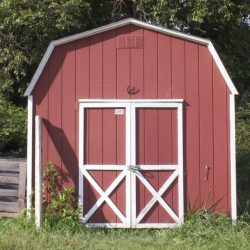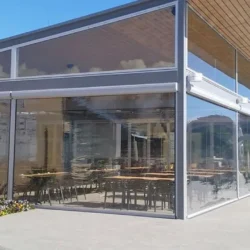Composting: you’ve heard the term used before, but how much do you really know about it? Is it something that only farmers do? Is it reserved only for people with big gardens and lots of plants to look after? Or is it something that is accessible to everyone?
In this article, we’re going to focus on the purpose of composting. Why is it so important for our environment? And what will happen if we don’t compost?
Read on and we’ll tell you everything you need to know on the subject.
What is the purpose of composting?

So, what is the purpose of composting? Ultimately, it all comes down to you. Some people compost because:
- It’s good for the environment and they want to do their bit to reduce their carbon footprint.
- To reduce the amount of food waste that they are putting into landfills.
- To cut down on how often they have to empty their trash can because of their smelly food waste stinking out the kitchen.
- Because they have a large garden with loads of plants and want to save money on fertiliser.
- To produce natural, homemade fertiliser for plants without any nasty and unnecessary chemicals.
The list goes on. There are so many reasons to compost and you need to find a purpose that fits your lifestyle.
In any case, the literal purpose of composting is to create a by-product from your food, green, and brown waste that can be used to enrich the soil for your plants, help retain moisture, and suppress plant diseases and pests.
Why is composting important for the environment?

Now that you have a better understanding of the purpose of composting, what does it actually do for the environment? And why is it so important?
- It’s so good for soil: Simply put, soil loves compost. It can help to improve soil structure by adding plenty of important nutrients, it can help to balance the PH levels in your soil, and it also adds better moisture retention and filtration (not to mention all the beneficial microbes).
- It helps to refresh and filter local water sources: The fact that compost can hold 5 to 20-times its weight in water means that it can increase the amount of water that is able to penetrate the soil that it is added to. This is great news for your plants but it’s also invaluable for allowing water to see way down below into the rocky layers beneath, thus replenishing local springs.
- It cleans our oceans: You read that right! Compost can actually help to clean our oceans. The fact is, water always ends up in the ocean eventually and given compost’s natural ability to filter water, it only leads to a positive end result. It certainly beats chemical fertilisers that’s for sure!
- Compost helps control erosion: Compost has excellent water retention abilities as we’ve already established – which is perfect for alleviating the devastating impacts of erosion.
- Reduces greenhouse gases: Compost takes our food waste and turns it into something helpful. Those who don’t compost their food waste invariably send all of their scraps to landfills. These are the 3rd leading cause of methane emissions which are invariably heating up our planet and contributing to the unsettling record-breaking weather events happening all over the world.
- Cuts down on disposal and transportation costs: For every single food scrap that goes into a composter as opposed to a garbage truck, money is being saved. The fact is, trash is expensive to get rid of!
- It turns food waste into something tangible: So much money is wasted on food scraps. However, when those food scraps are actually put to good use (rather than buried in a landfill), it completed the food cycle and reduces our collective carbon footprint.
- It can help you save money on food at home: The very act of buying a food waste composter will make you more conscious about what you are throwing away. With all that knowledge, you will start shopping for groceries with sustainability in mind. It’s a win-win!
- It reduces waste in landfills: Not only do landfills produce an obscene amount of greenhouse gases, but they also take up an awful lot of space. Our land is finite and with the rate at which the human population is growing, it’s always worth cutting back on our wastage.
- Cleaner, healthier food: When you make your own compost to grow your own veggies, you’re creating cleaner and healthier food. No unnatural additives or fertilisers, just pure, organic, home-grown goodness!
What will happen if we don’t compost?

So, what happens if we don’t compost? Well, if every single person on the planet were to decide that composting is a waste of time…we’d be in a lot of trouble.
The fact is, there are 35.3 million tons of wasted food going into landfills each year in the US (on average). That is an excessive amount of waste that is contributing to global warming.
If people were to simply stop, that number would jump up significantly.
Not only that, more money would be spent on chemical fertilisers that aren’t great for the environment. When it runs off into our water systems, it creates further pollution.
The cycle will go on and on, but the long and short of it is: if we all stop composting, it won’t look good for us.

However, you can alleviate that and join the cause! Do your part and start striving toward a cleaner, greener environment and learn how composting works.
You’ll reduce your own household waste and have tonnes of organic food for your plants! We promise you won’t be disappointed by the results.

















